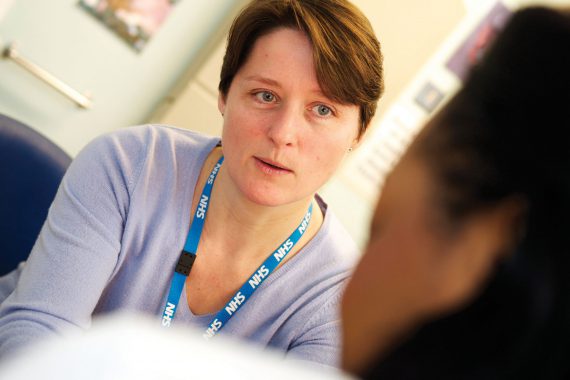
I usually love the Copperfield posts; they can make me chuckle or raise an eyebrow. The contribution last week was a disappointing mess of inaccuracy and stereotype – and didn’t really feel like the usual satirical post.
It has always been public knowledge, but I shall now officially out myself as one of those involved in the proposal to get a fully funded six-week maternal check into the GP contract. To do this, I have worked alongside the wonderful staff at the NCT.
As an ex- obs and gynae reg, this didn’t originally sit easily with me (for reasons we all know) but after an initially rocky start, we got on brilliantly and the organisation has been receptive, engaged and massively skilful in navigating the messy world of politics, the media and medicine.
So why did I get involved in something when I spend many hours of my life telling GPs NOT to do things and take on more? It seems counterintuitive. I got involved because postnatal care in the UK is currently failing women and their families.
For very many women this is a difficult, traumatic and confusing time during which they need dedicated care
This isn’t some incredibly rare, once-in-a-career diagnosis that a GP ‘is best placed’ to manage. This is something that affects all women who give birth in the UK and that sadly, when managed badly, has lifelong implications for women.
Far from being a ‘recurring chore’ or ‘touchy feely’ stuff, this may be the one dedicated chance for a vulnerable woman who is feeling hideously anxious or suffering from incontinence or pain having had her pelvic floor sewn back together to ask her doctor for help and advice. I would suggest that it is only a ‘pointless ritual’ if it is done badly. Done well, it is an important opportunity to uncover significant pathology, or a valuable time for reassurance and holistic care.
So, what do we know about the postnatal period for women in the UK? The MBRRACE report released just a few days ago showed that suicide is still the leading direct cause of death for women in the six to 42 weeks postnatally. Many of the women who died did not have the care they needed in the antenatal and postnatal period.
The Falling through the Gaps report by the Centre for Mental Health and the Hidden Half research both indicated that women will not disclose significant mental health problems postnatally unless asked directly, in an open non-judgemental manner, in time dedicated to them. They are fearful of the stigma and implications.
Perinatal mental health issues affect approximately one in four women. This isn’t a niche problem, this is a massive undiagnosed amount of pathology that we are missing to the detriment of women and their children. PTSD, OCD, depression and anxiety, all serious conditions that must not be missed but are being missed in half of women suffering from them.
Research soon to be published indicates that up to 30% of women will experience faecal urgency or incontinence issues in the year after birth, but again, will not divulge this information unless directly asked, mostly due to embarrassment. Urinary incontinence, domestic violence, perineal pain, body image… the list of problems that can and do exist during this period when a woman is absolutely at her most vulnerable is huge.
The NCT questions that Copperfield alludes to do not form the basis of the postnatal check. I have created a template, in conjunction with experts in the field of perinatal psychiatry, women’s health physio, obstetrics and gynaecology, psychology and general practice. It specifically guides the person doing the check to ask the difficult and important questions. Unsurprisingly, the question ‘does your perineum feel ok?’ is not in there.
The evidence for the timing of postnatal care is limited, because it has suffered from being an under- researched and poorly funded service for so long. It got ‘forgotten’ from the 2004 contract. No funding equals no audit.
The bid put together by the NCT specifies that this has to come with adequate funding. The checks can be done by a GP or another dedicated trained health professional and can be done at a practice or cluster level. It also includes money for training. Those who are doing it already will finally be paid for their hard work. Those who aren’t, will be able to set up a system of checks.
To dismiss women’s care at one of the most difficult times in their lives as a ‘chore’ is deeply insulting. Yes, some sail through it and it might mean you get to catch up writing your Pulse columns if they leave quickly. For very many women however, this is a difficult, traumatic and confusing time during which they need dedicated care.
The status quo is failing women, badly. Women are dying and suffering from significant harm as a result of not getting good postnatal care and the effects of this stay with them life-long.
Including the six-week postnatal check may be an opportunity to start the process of working together with our community midwifery and health visiting colleagues to right this wrong.
I know some GP colleagues will never agree with this, I know many others are firmly behind it. I hope all will, if the government funds this appropriately, give it their best shot to ensure postnatal women begin to get the care that the evidence shows they need.
Dr Stephanie De Giorgio is a portfolio GP and maternal and infant mental health lead for East Kent
Pulse October survey
Take our July 2025 survey to potentially win £1.000 worth of tokens















